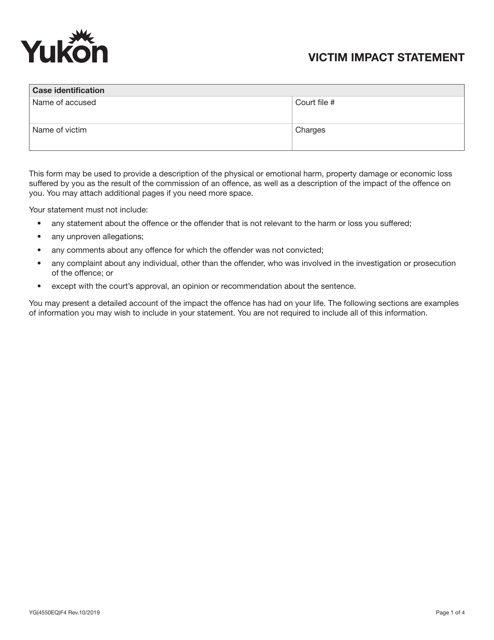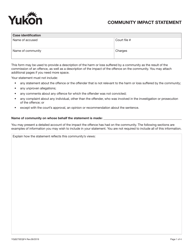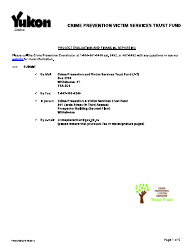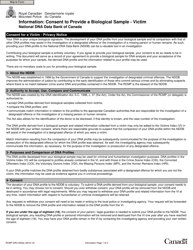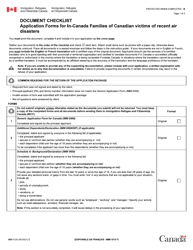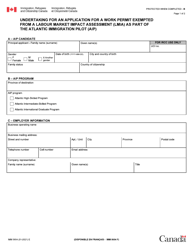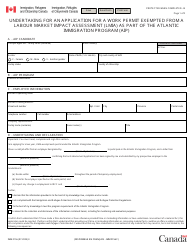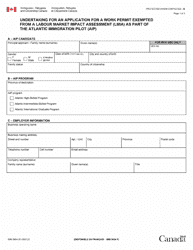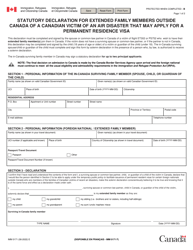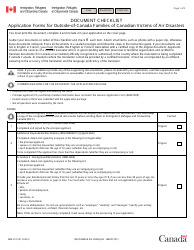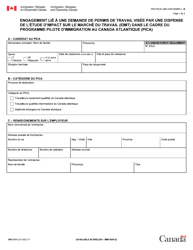Form YG4550 Victim Impact Statement - Yukon, Canada
Form YG4550 Victim Impact Statement is a document used in Yukon, Canada, by victims of crime to share how the crime has affected them. It allows victims to express their feelings, provide information about the impact of the crime, and make recommendations to the court regarding sentencing.
The victim files the Form YG4550 Victim Impact Statement in Yukon, Canada.
FAQ
Q: What is a Victim Impact Statement?
A: A Victim Impact Statement is a written or oral statement made by a victim of a crime to describe the impact the crime had on them.
Q: Why would someone submit a Victim Impact Statement?
A: Victims may choose to submit a Victim Impact Statement to express their feelings, thoughts, and opinions about the crime and its effects on their lives.
Q: Who can submit a Victim Impact Statement?
A: In Yukon, Canada, any victim of a crime has the right to submit a Victim Impact Statement.
Q: Is there a deadline for submitting a Victim Impact Statement?
A: Yes, the Victim Impact Statement must be submitted at least one week before the offender's sentencing hearing.
Q: What should be included in a Victim Impact Statement?
A: A Victim Impact Statement should include information about the physical, emotional, and financial impact of the crime, as well as any other relevant details that the victim wants to share.
Q: Can a Victim Impact Statement be read out in court?
A: Yes, victims have the option to read their Victim Impact Statement out loud in court or have it read by someone else on their behalf.
Q: Will the offender be able to see the Victim Impact Statement?
A: Yes, the offender has the right to see the Victim Impact Statement and respond to it during the sentencing hearing.
Q: Can the victim request a copy of the Victim Impact Statement?
A: Yes, victims have the right to request a copy of their Victim Impact Statement after the sentencing hearing.
Q: How will the Victim Impact Statement be used in sentencing?
A: The Victim Impact Statement will be considered by the judge during the sentencing process to help determine an appropriate sentence for the offender.
